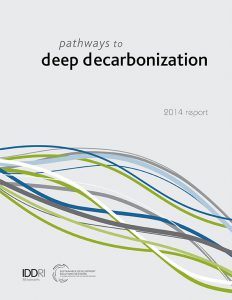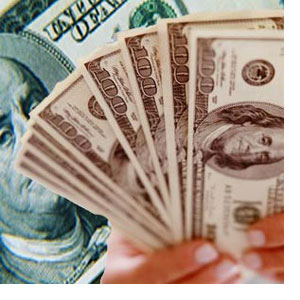
On the local level, if you find yourself sitting in traffic day after day, or wonder why you can’t take a train to the airport, you often understand at least the short answers to these questions, even if you personally object to them. In this way, The Way Things Are (also known as Why We Can’t Have Nice Things) seem set in stone. Unchangeable, immutable facts of life, if not singular fibers in a hand-basket to the not-so-good place. I know stuff I can do that is planetarily positive that also makes a huge difference to me personally but not a dent in the broader problem. This dissonance can be paralyzing, and often results in people abandoning even the former, achievable, highly-recommended personal actions.
National-level solutions seem just as if not much more difficult. But are they?
Young activists, who will be forced to live with the ravages of climate change, find this upsetting. So they have proposed a plan of their own. It’s called the Green New Deal (GND) — a term purposefully reminiscent of Franklin Delano Roosevelt’s original New Deal in the 1930s — and it has become the talk of the town.
…
the exact details of the GND remain to be worked out, but the broad thrust is fairly simple. It refers, in the loosest sense, to a massive program of investments in clean-energy jobs and infrastructure, meant to transform not just the energy sector, but the entire economy. It is meant both to decarbonize the economy and to make it fairer and more just.But the policy is only part of the picture. Just as striking are the politics, which seem to have tapped into an enormous, untapped demand for climate ambition.
This is not Pollyanna, but it’s also difficult to criticize anything when nothing else is going on or has worked – especially with ‘nothing’ not being an option.
And while Roberts is certainly correct that this is not new, and the politics of it might sound a little gimmicky, the emphasis on the politics might be the key. Plus, novelty is not what is required – it’s quite well-established which policy changes could work best. It’s the will that has seemed out of reach. The Green New Deal agitation might be just what is needed to get the gears moving. Ambitious enough, broad enough, frightening enough (backed by newly-elected officials) to get the attention of you idling in your car because maybe it comes across like a different story on Nice People’s Radio, much less something more foxxy. It’s backed by our leading new firebrand already – adding to the fright she causes but also lending weight to that fright. Maybe it will give us to a chance to at least ask, “Who Knows?” That would be quite a bit more than we have been doing.

